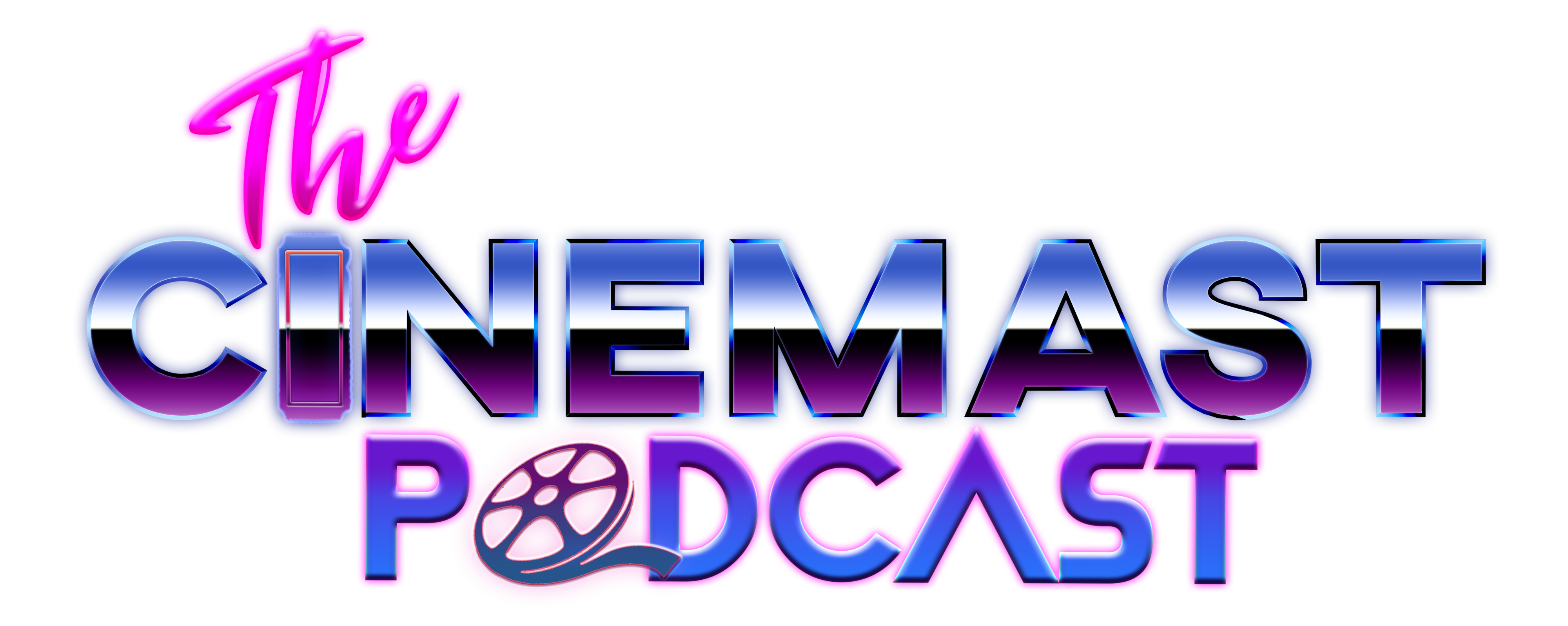In 1994’s The Lion King, Mufasa tells his son, Simba, that we are all connected in the great “Circle of Life”. In Director Jon Favreau’s The Lion King remake, Timon the meerkat explains that the circle of life is more a “line of indifference”. If that line is what separates heartfelt remakes from unabashed cash grabs, Favreau’s remake of The Lion King, while visually stunning at times, does little to elevate or enhance the existing material, rather changing little and losing almost all the emotion and heart of the original film in the process of cashing in on Disney fan nostalgia.
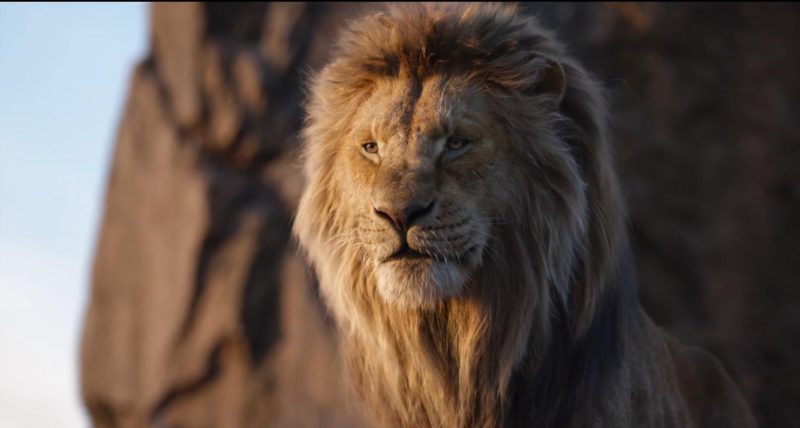
From the very beginning of The Lion King, Favreau isn’t trying to hide what this movie is. As the opening “AAAAAAAAAHHH” of the iconic song, “The Circle of Life” triumphantly rings in over a rising sun and we watch the animals head for Pride Rock, it is clear that Favreau’s version of The Lion King is intending to be a literal remake of the original–shot for shot for shot. From the birds flying over water, the giraffes walking over hills, the elephants stomping towards the camera, and even the ants running on branches, everything in this scene is taken directly from the original movie’s opening sequence.
Visually, The Lion King is unlike anything I have seen before. In fact, if there was no dialogue in this film I could almost be convinced that this movie was a Disney Nature film, rather than a remake of an animated classic. The photorealism of the animals is stunning and the attention to even the tiniest of details is to be commended. But while the film is absolutely gorgeous and technically impressive from a VFX perspective, it just feels like a cheap rendition of something that so many of us have embraced and loved for the past 25 years.
Gone is the completely over-the-top and colorful displays in “I Just Can’t Wait to Be King”. Now it’s just animals running around while the music plays in the background over poorly dubbed-lion cubs’ mouths.
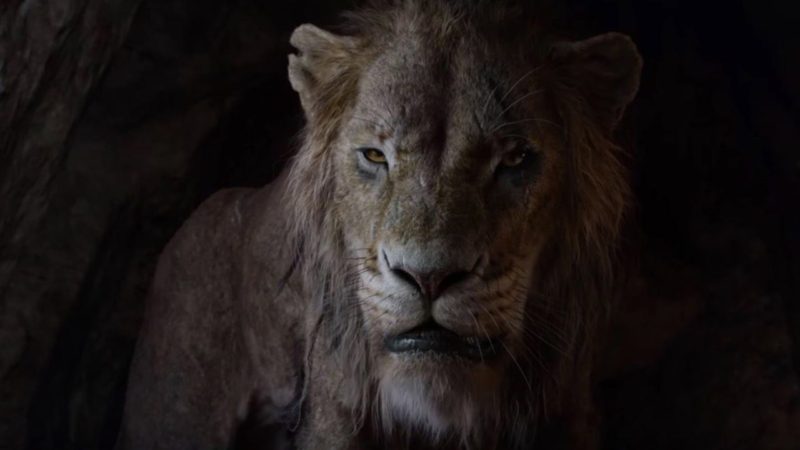
Gone is Jeremy Irons’ Scar, the Shakespearean villain, with his cruelly charming demeanor, black mane, green eyes, and devilish grin. He’s been replaced with Chiwetel Ejiofor’s saggy, sad-looking, grey lion.
Gone are the vibrant, emotive and personality-driven hyenas, completely distinct in their voice, attitude, and character design. Now, it’s hard to even tell them apart amongst all the other hyenas as they blend into the crowd.
What made The Lion King and all of Disney’s animated classics so good in the first place is that they weren’t real. We never needed them to be, and they never tried to be. In fact, a lot of these stories were animated largely because many of these stories could be told better via gorgeous hand-drawn animation. And without that animator’s touch that allows for the absurd and farcical to live, breathe and tell a story, The Lion King feels shockingly uninspired and hollow.
The film’s animals find themselves stranded in the uncanny valley, clearly fake and often poorly dubbed. Their faces betray no emotion whatsoever because photorealistic lions, much like real lions, don’t show sadness, pain, or anger. You can’t tell when a lion is unsure of whether he likes the taste of a bug or when he’s ready to pull a prank on an unsuspecting bird. Almost every character’s facial expressions (except maybe Timon and the hyenas) are nearly identical.
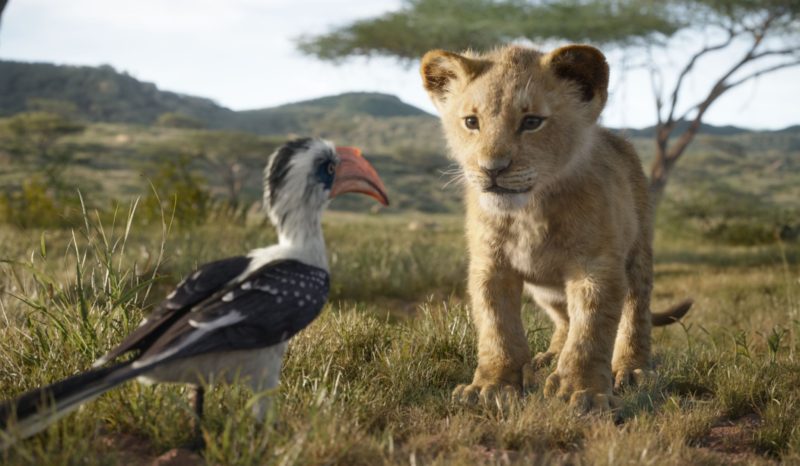
So with all of this lack of visible emotion, the weight of conveying that emotion must happen via voice acting, a place where the film’s impressive cast of voice actors largely falls short. Some of them are able to impress, namely John Oliver’s Zazu, Seth Rogen’s Pumbaa and Billy Eichner’s Timon, who, interestingly enough, get most of the script’s new material. But with nearly no real dialogue changes for any other characters, there’s nothing much to do than recite lines they’ve all heard for a quarter of a decade.
Say what you want about the 2017’s Beauty and the Beast remake (I personally despise it), but that movie took some chances, found opportunities to grow and expand the story and felt like it cared about trying to bring something new to the table. Whether those changes enhanced the story or just felt out of place is another discussion, but the film at least tried to be more than just a rehash of the same story beats we’d seen for years. The Lion King, sadly, doesn’t even bother.
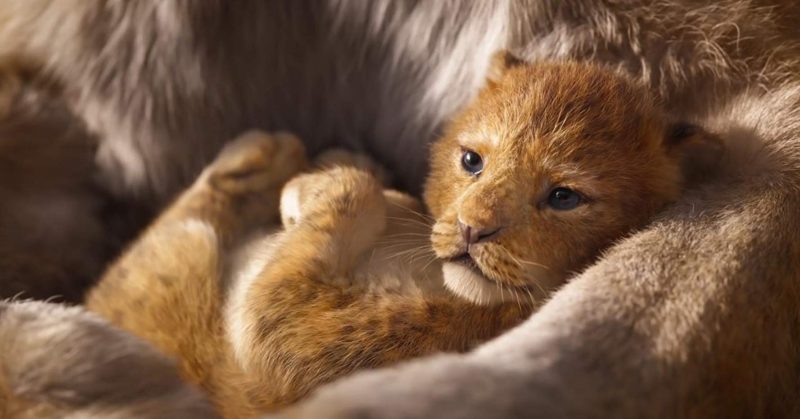
The movie’s music is largely the same as 1994’s The Lion King, perhaps one of the most impressive scores and soundtracks of any movie ever. 2019’s The Lion King brings Hans Zimmer back for a rerecorded version of the original score, with recognizable musical cues occurring at the expected moments.
The songs, for me, were rather hit and miss. I found Scar’s “Be Prepared” and Timon and Pumbaa’s “Hakuna Matata” both tedious and just plain boring, while the revamped “The Lion Sleeps Tonight” is charming and lively, Donald Glover and Beyonce’s rendition of “Can You Feel the Love Tonight?” feels cared for, and Beyonce’s new solo addition to the soundtrack, “Spirit” stands out as a breath of fresh air in a savannah of “same ‘ole, same ‘ole”.
The real question that this film had to answer was the reason for its own existence. Did we need this yet? The original film is beautifully animated, holds up incredibly well and is still revered as one of the best animated films of all time. The answer is no, we didn’t need this. I don’t foresee this being anyone’s Lion King of choice in five years when one is looking for a Lion King to watch. Sadly, this spit-shined piece of copypasta belongs in an elephant graveyard collecting dust.
RATING: D+

